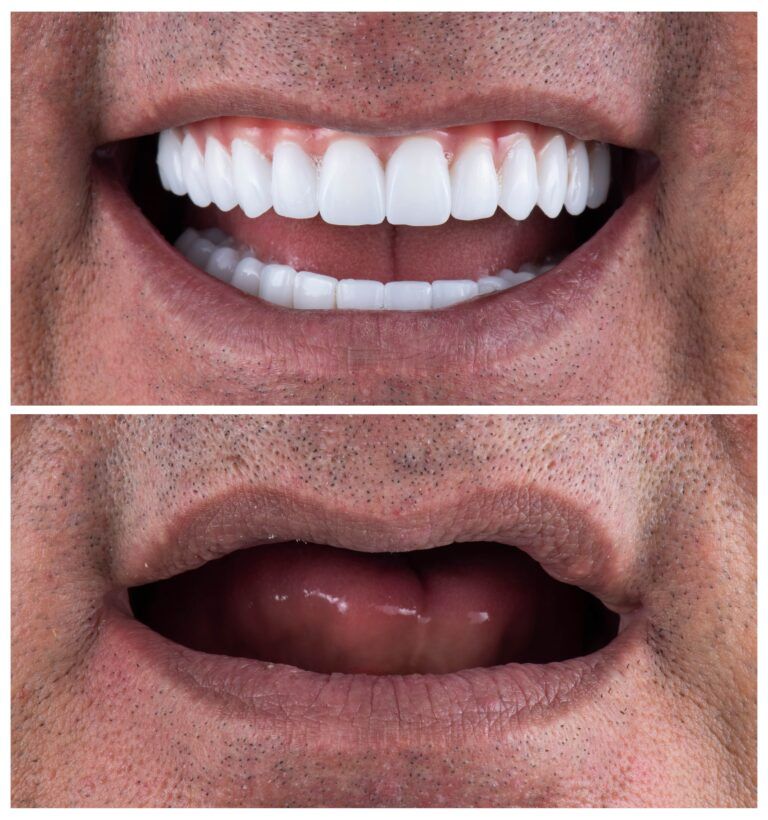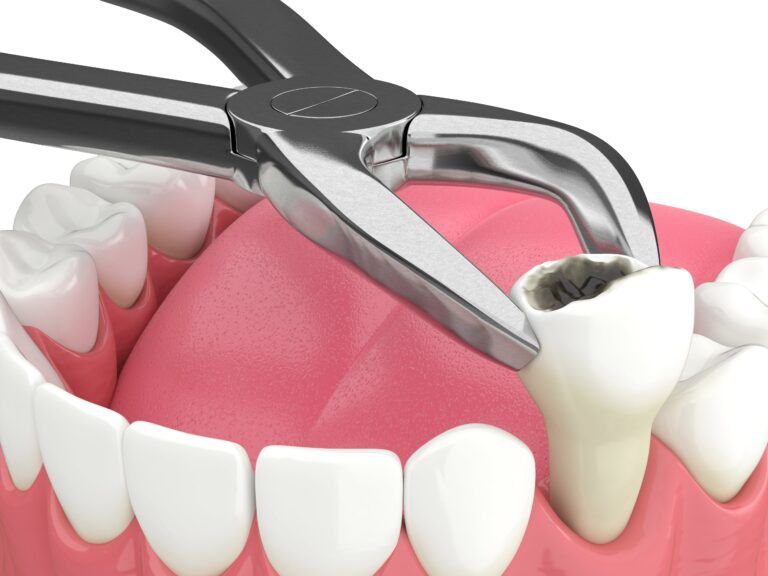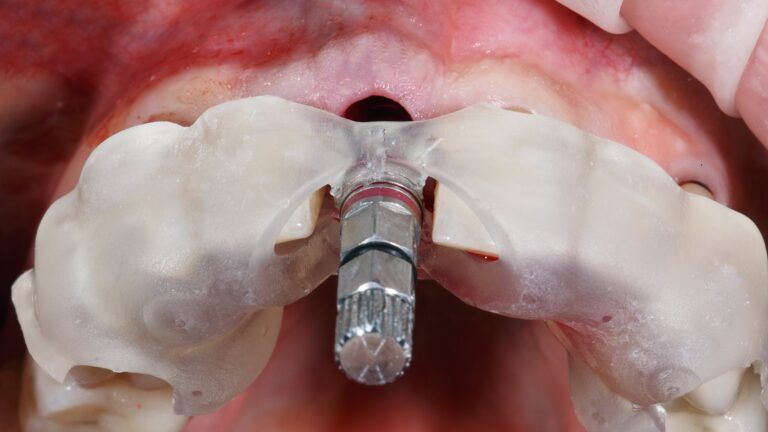Dental implants have revolutionized the field of restorative dentistry, offering a reliable and aesthetically pleasing solution for replacing missing teeth. Among the various materials used for dental implants, zirconia has emerged as a game-changer. Zirconia dental implants, made from zirconium dioxide, offer a host of advantages that make them an appealing choice for patients seeking a perfect smile. With their exceptional biocompatibility, natural-looking aesthetics, durability, and resistance to corrosion, zirconia dental implants have gained recognition as a revolutionary alternative to traditional implant materials. In this blog, we will delve into the world of zirconia dental implants, exploring their benefits, the implantation procedure, potential drawbacks, and how they compare to other implant materials, providing valuable insights into this innovative dental solution.
What are Zirconia Dental Implants?
Zirconia dental implants are a type of dental implant made from zirconium dioxide, a biocompatible ceramic material. Zirconia, also known as zirconium oxide, is a white, crystalline substance that possesses remarkable properties ideal for dental restorations. These implants are designed to replace missing teeth by mimicking the natural tooth structure and anchoring securely into the jawbone.
Zirconia dental implants offer several benefits that make them an attractive option for individuals seeking tooth replacement. Here are some of the key advantages of zirconia dental implants:

- Natural-looking aesthetics: Zirconia dental implants closely resemble the color and translucency of natural teeth. Their white coloration allows for a seamless blend with the surrounding teeth, resulting in an aesthetically pleasing smile. This is especially beneficial for individuals concerned about the cosmetic aspect of their dental restoration.
- Biocompatibility: Zirconia is highly biocompatible, meaning it is well-tolerated by the body. This reduces the risk of inflammation, gum irritation, and allergic reactions. Zirconia implants are suitable for a wide range of patients, including those with sensitivities or allergies to metals, making them a versatile option for tooth replacement.
- Durability and strength: Zirconia dental implants offer excellent durability and strength. They are highly resistant to fracture, ensuring a long-lasting and reliable solution for tooth replacement. Zirconia implants can withstand the forces of biting and chewing, providing stability and functionality similar to natural teeth.
- Resistance to corrosion: Zirconia is a corrosion-resistant material, unlike metals such as titanium. This resistance to corrosion helps maintain the integrity and longevity of the implant, reducing the likelihood of complications or the need for replacement over time.
- Low thermal conductivity: Zirconia has a low thermal conductivity, which means it is less sensitive to temperature changes. This can reduce the likelihood of experiencing sensitivity to hot or cold substances, enhancing the overall comfort of the patient.
- Reduced plaque accumulation: Zirconia’s smooth surface and low affinity for plaque make it less prone to bacterial adhesion and plaque accumulation compared to some other materials. This can contribute to better oral hygiene and reduced risk of gum disease around the implant.
Overall, zirconia dental implants offer natural-looking aesthetics, excellent biocompatibility, durability, resistance to corrosion, low thermal conductivity, and reduced plaque accumulation. These benefits make zirconia implants a compelling choice for individuals seeking a long-lasting, aesthetically pleasing, and functional solution for tooth replacement. It is important to consult with a dental professional to determine if zirconia implants are suitable for your specific dental needs and circumstances.
Potential Drawbacks and Considerations:
While zirconia dental implants offer several benefits, it’s important to consider potential drawbacks as well. Here are some of the drawbacks associated with zirconia dental implants:
- Limited long-term data: Zirconia dental implants have been in use for a relatively shorter period compared to traditional titanium implants. Long-term clinical data on zirconia implant performance and success rates are somewhat limited. However, initial studies and short-term results are promising.
- Complexity of placement: Zirconia implants require careful surgical placement due to their ceramic material properties. They may be more challenging to insert compared to titanium implants, as zirconia is relatively more brittle. This requires a skilled and experienced dentist with expertise in working with zirconia implants.
- Limited restoration options: Zirconia implants are primarily available as one-piece implants, limiting restorative flexibility. Unlike titanium implants, which commonly offer both one-piece and two-piece designs, zirconia implants may not allow for the same level of customization in certain cases. This can impact the ability to achieve optimal aesthetic and functional outcomes.
- Cost: Zirconia dental implants tend to be more expensive than traditional titanium implants. The higher cost is attributed to the complexity of the material and manufacturing processes involved in creating zirconia implants. It’s important to consider the financial implications when choosing zirconia implants as a tooth replacement option.
- Potential for implant fracture: While zirconia implants are known for their strength and durability, there is a slight possibility of implant fracture, particularly under extreme stress or trauma. This fracture risk is relatively low but should still be taken into account, especially in cases where excessive force may be applied to the implant.
- Limited availability and expertise: Zirconia implants may not be as widely available as titanium implants, and finding a dentist with expertise in working with zirconia may require additional research. Due to the specialized nature of zirconia implants, it’s important to ensure that your chosen dental professional has the necessary training and experience to perform the procedure effectively.
It’s essential to discuss these drawbacks with your dental professional to have a comprehensive understanding of the potential risks and limitations associated with zirconia dental implants. They can provide personalized guidance based on your specific oral health needs and help you make an informed decision regarding the most suitable implant option for you.
Comparing Zirconia to Other Dental Implant Materials:
To better understand the advantages of zirconia dental implants, it’s helpful to compare them to other commonly used materials like titanium and ceramic. By comparing success rates, long-term outcomes, and patient experiences, we can gain insights into the unique benefits that zirconia brings to the table.
Here’s a table comparing zirconia implants to titanium and ceramic implants:
| Zirconia Implants | Titanium Implants | Ceramic Implants | |
| Biocompatibility | Highly biocompatible; suitable for individuals with metal sensitivities or allergies | Highly biocompatible | Highly biocompatible |
| Aesthetics | Natural-looking aesthetics; closely resemble natural teeth | Grayish hue at the gum line | Natural-looking aesthetics; shade and translucency may vary |
| Corrosion Resistance | Resistant to corrosion | Resistant to corrosion | Varies depending on ceramic material |
| Osseointegration | Promising rates of osseointegration | Established track record of successful osseointegration | Varies depending on ceramic material |
| Strength | Excellent strength, slight possibility of fracture under extreme stress | Excellent strength and fracture resistance | Varies depending on ceramic material |
| Thermal Conductivity | Low thermal conductivity; less sensitive to temperature changes | Moderate thermal conductivity | Varies depending on ceramic material |
| Cost | Often more expensive | Generally less expensive | Varies depending on ceramic material |
It’s important to remember that the information in this table provides a general overview and that specific implant materials and individual cases may have unique considerations. Consulting with a dental professional is crucial to determine the most appropriate implant material based on individual circumstances.
In Conclusion:
Zirconia dental implants have emerged as a revolutionary solution for those seeking a perfect smile. Their exceptional aesthetics, biocompatibility, durability, and resistance to corrosion make them a compelling alternative to traditional implant materials. While there are considerations such as cost and availability, the numerous benefits of zirconia implants make them an exciting option worth exploring. Consultation with a dental professional is essential for personalized advice and to determine if zirconia implants are the right choice for your unique situation. With zirconia dental implants, you can reclaim your smile with confidence and enjoy the benefits of a long-lasting, beautiful restoration.

Irfan Atcha, DDS, DICOI, DADIA at New Teeth Chicago Dental in Chicago, Illinois is a board-certified general dentist and a nationally recognized expert in dental implants, cosmetic dentistry, and sedation dentistry. Dr. Atcha is now serving patients in Naples, Bonita Springs and SW FL area with All-on-4 implants, teeth-in-a-day, same day dental implants and the complex zygomatic dental implants for the no-jaw bone solution approach. To schedule a consultation please email Dr. Atcha at teethforyou@gmail.com.





